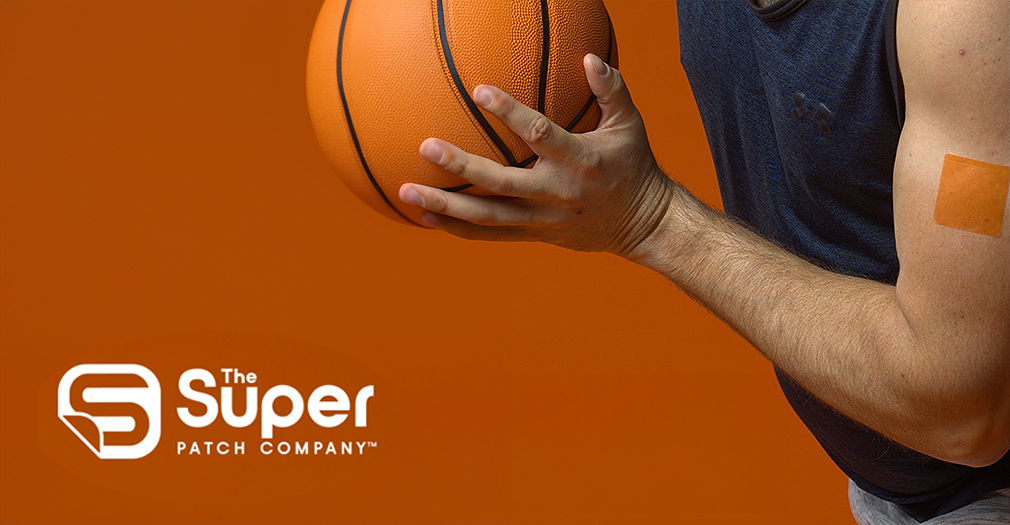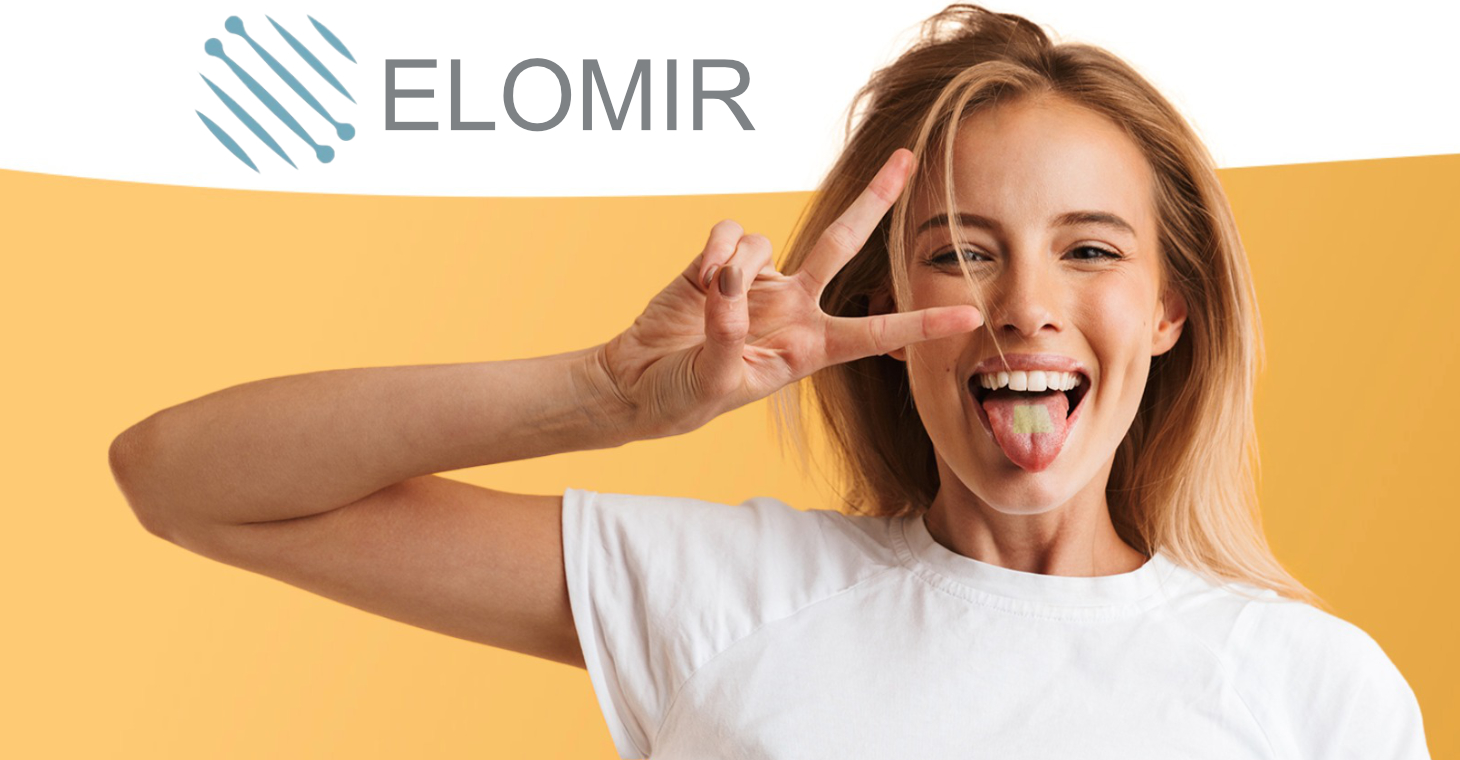
Most Deceptive Ads of 2024
Here were some of the worst ads TINA.org investigated this year.
TINA.org takes a closer look at this MLM offering "braille for your brain."
“I have done this on quite a few people now but I’ve never had the balance test done on me,” a woman says in a video posted to Facebook in May.
The balance test is actually a series of tests, each of which ends the same for the woman: in failure. Either she loses her balance or isn’t able to resist the pressure exerted on her by the person performing the tests. After the first test, she nearly falls onto the couch.
Then the woman applies a patch to her right forearm. Subject to the same balance tests a second time, she becomes a rock.
The woman in the video is Yarrow Fox, a high-ranking distributor in Super Patch, an Multilevel Marketing – a way of distributing products or services in which the distributors earn income from their own retail sales and from retail sales made by their direct and indirect recruits. company that sells wearable patches for everything from balance and stability to athletic performance to pain relief and better sleep.
But it’s the balance test videos promoting the MLM’s Liberty patch that are all over Facebook.
In another “Liberty patch demonstration” video posted to Facebook last year, another high-level Super Patch distributor (or associate as Super Patch calls them), Michelle Ellis, explains how the company’s touted vibrotactile technology works after successfully performing the test on her mother.
Essentially this sticker has ridges in it. And the ridges in it have nothing in them. Once those ridges in that pattern touch your skin, there’s a message that goes to your brain and it says, “This is the message for your brain.” So, this specific patch is saying, “Your range of motion, your stability and your balance are enhanced.”
Super Patch calls it “braille for your brain.”
And there’s more.
After receiving multiple complaints from consumers, TINA.org took a closer look at this MLM operating in the U.S., Canada and the U.K.
Here’s what you should know about Super Patch.
The founder and CEO of Super Patch is Jay Dhaliwal. But Super Patch is not Dhaliwal’s only MLM. He is also the chief executive at VoxxLife, which he founded in 2016. VoxxLife’s products, which include socks and insoles and at one point included patches, purportedly use the same haptic vibrotactile trigger technology as Super Patch’s dozen patches.
In a company press release last fall, Super Patch said over the past 14 years Dhaliwal “has done extensive research and developed a line of healthcare products for pain, sleep, anxiety, and other conditions that incorporate haptic vibrotactile trigger technology, a technology that has shown to influence the neuromatrix of pain.”
Researchers have shown that these pathways and areas of the brain that are associated with the neuromatrix can change in response to external stimuli. Haptic vibrotactile trigger technology is designed to target the nociceptive pathways and theorized to disrupt the neuromatrix of pain.
And there’s overlap between the companies in testimonials on the Super Patch website that report results achieved using both VoxxLife and Super Patch products, as well as in research cited by Super Patch that examined both companies’ products, and in a video on the Super Patch compensation plan, which recognizes VoxxLife as the distributor of Super Patch.
There’s so much overlap that it can be difficult to tell when VoxxLife ends and Super Patch begins.
Super Patch associates’ claims about seemingly miraculous results aren’t limited to achieving sudden stability. Associates also claim in social media posts that the company’s patches are able to help people walk after being in a wheelchair for years and help with addiction.
In fact, one of the consumers who reached out to TINA.org with concerns about the company’s claims said he has repeatedly been targeted by Super Patch associates specifically because he is a recovering addict.
“These people are telling me if I wear these Super Patches, I can get out and off ALL of my Rehab,” he wrote.
Then there are the reviews that Super Patch features on its own website that claim the company’s patches can impact a number of medical conditions, including Parkinson’s, multiple sclerosis and COVID.
A YouTube channel named Super Patch Training is also chock full of videos promoting the company’s products for everything from arthritis, insomnia and ADHD in children (even though the patches are not recommended for children under 8 years old), to rare diseases and diabetic neuropathy.
What does the law have to say about these types of health claims? A couple things.
In order to make disease-treatment claims, the FDA requires that companies seek and obtain its approval. And Super Patch has not done that. A disclaimer at the very bottom of its website states:
The statements made in connection with these products have not been reviewed by the Food and Drug Administration (FDA), and the products’ efficacy has not been confirmed through Food and Drug Administration-approved studies.
(Of note, the agency has sent warning letters to companies promoting skin patches with disease-treatment claims in the past.)
As for the FTC, the agency requires that marketers making health claims have competent and reliable scientific evidence, generally in the form of randomized, controlled human clinical trials, or what’s known as RCTs.
On its website, Super Patch publishes research it claims proves the “super scientific effectiveness” of its patches. But the research leaves much to be desired.
There is a lot of talk about the science of Super Patch on the company’s website, about how the vibrotactile technology inside the patches sends a message to the brain, leading to a wide range of benefits for the wearer. But that’s primarily what it appears to be – talk.
According to the research that Super Patch shares on its website, only three of its patches have been studied at all – the REM sleep patch, the Freedom pain relief patch and the Peace patch. And the studies on these products raise some issues, including:
All of which is to say that the research isn’t likely to pass the FTC’s RCT standard for health claims.
In its pitch to healthcare professionals on its website, Super Patch says that they should partner with the company not only because its patches are “backed by research” (which, as discussed above, is a questionable claim), but also because its products are “FDA registered.”
Trust in the highest level of regulatory approval. The Super Patch is registered with the FDA, giving you and your patients peace of mind.
But FDA registration isn’t the highest level of regulatory approval in the FDA’s system. That would be … drumroll, please … FDA approval.
All FDA registered means is that the patches have been registered with the FDA. That’s it. It does not mean that the FDA has subjected the patches, which it considers Class I medical devices, to any premarket review.
In fact, the FDA notes in its establishment registration and device listing database that:
Registration of a device establishment, assignment of a registration number, or listing of a medical device does not in any way denote approval of the establishment or its products by FDA.
Moreover, according to a search of the database, only four of the company’s 12 patches – Focus, Freedom, Peace and REM — are registered with the FDA.
Meanwhile, on Facebook and LinkedIn, several Super Patch associates have shared images with the FDA’s logo on it – a clear violation of the FDA’s Name and Logo Policy, which prohibits the agency’s name and logo from appearing on private section materials.
Let’s talk money. According to Super Patch and its associates, the Super Patch business opportunity is a way to earn immediate income and incredible residual income and tens of thousands of dollars in bonuses alone.
“I have been in this profession for over 32 years and I will honestly tell you that this is the greatest compensation plan that I’ve ever been a part of,” Steve Schulz, who claims he was personally recruited by the founder of Super Patch to help grow the company, says in a video explaining the MLM’s compensation plan.
“Why? Because of the payout, number one, the amount of money that the Super Patch company and Jay [the founder] is willing to pay out but, number two, the simplicity of this compensation plan, which means everybody can understand it relatively easily.”
In fact, Schulz says, it’s as easy as “monkey see, monkey do.”
But a closer look at the details reveals that earning money may not be quite that easy.
First, the cost to enroll as a Super Patch associate ranges from $50 to $999 depending on the starter kit. Super Patch encourages associates to invest in a starter kit, telling them that the patch prices at enrollment are the best prices.
But not all starter kits qualify for two bonus programs that purportedly award associates with hundreds of dollars in product credits for reaching recruitment goals in the first 30 and 60 days. Associates must spend at least $549 on a starter kit if they want an opportunity to participate in the programs.
In addition, in order to become “active” and eligible for monthly commissions, associates must either sign up for the company’s SmartShip subscription for $90 a month or purchase $120 in patches every month.
So, that is a minimum initial investment of over $600 to become a Super Patch associate and be eligible for all bonuses. What are the odds you’ll recoup this investment? An income disclosure statement might help you answer this question but Super Patch hasn’t made one publicly available.
Meanwhile, according to the FTC, most people who join legitimate MLMs make little or no money and some even lose money. (Read about TINA.org’s latest investigation into the near-universal use of deceptive income claims in the MLM industry here.)
In a new business guidance for MLMs, the FTC states that:
If an MLM does not have evidence of the typical earnings of its participants (including any costs that its typical participants incur), it should refrain from making any earnings claims and ensure its participants do the same.
And, as it turns out, the FTC is no stranger to the Super Patch CEO.
In October 2021, VoxxLife, Dhaliwal’s other MLM whose name is sprinkled across the Super Patch website, was one of more than 1,100 companies, including hundreds of MLMs, to receive a notice from the FTC regarding financial penalties (of up to $51,744 per violation) for making deceptive income claims. In other words, Dhaliwal should know better.
At the top of its website above a carousel of its “most popular” patches, Super Patch advertises a “risk-free, 30-day money-back guarantee.” But scroll down to the bottom of the page and the guarantee may not seem so, well, guaranteed. There, the company discloses:
We offer a 30-day money-back guarantee on all Super Patch products (some exceptions apply)
According to the return policy (linked even further down the page):
We offer a full refund of the original purchase price within the 30-day money-back guarantee for all our Super Patches (conditions apply). Shipping & Handling charges are non-refundable. Regarding refund of Kit(s) / Pack(s) of Patches, the refund amount will be prorated: this means we will refund for the patches that are returned to us in fully resalable condition in unopened, original packaging. Sender will bear the return shipping charges.
So, you won’t get all of your money back and you need to pay for return shipping. Not exactly “risk free.”
TINA.org reached out to Super Patch for comment. Check back for updates.
Find more of our coverage on MLMs here.
Here were some of the worst ads TINA.org investigated this year.
What you need to know before you #hitthestrip.
Supplement MLM takes down dozens of deceptive claims following TINA.org investigation.


